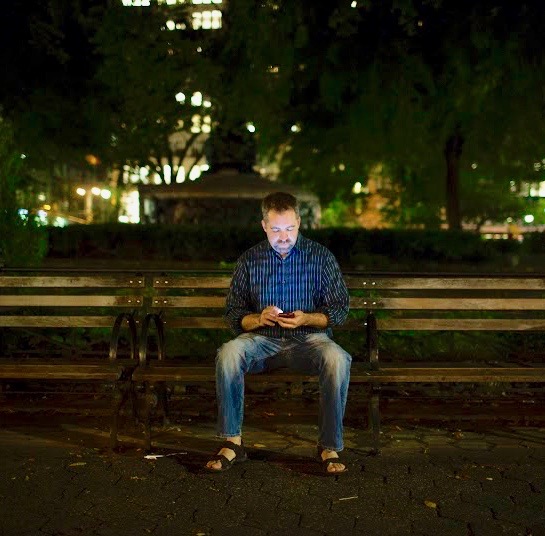Thank you so much for joining us, Jim. Can you tell us the “backstory” about what brought you to this specific career path?
In the early days of the internet, I had tinkered with creating websites and always found that enjoyable. One day in 2004 I googled “Mental Illness and Dating” and found nothing, so I thought this should exist. I hired some programmers on the cheap to code it (mistake). Over the years and after finding a competent affordable American coder, the site has morphed from a hobby to a full-fledged business. My initial desire to create the site was both philanthropic and driven by profit. I feel blessed to have had a significant recovery from serious mental illness and I know how important human connection is to those struggling with it. I take great pride in the number of amazing testimonials I receive from current and past users. Dozens of marriages!
According to Mental Health America’s report, over 44 million Americans have a mental health condition. Yet there’s still a stigma about mental illness. Can you share a few reasons you think this is so?
I can tell you it’s frustrating but I do think the situation is improving. There is a certain instinct ingrained in many people as a “fear of the other”. Behavior deemed as odd or inappropriate often leads to a negative indictment of that person. Attaching labels is rather easy to do. The fact that a hallmark symptom of many illnesses is social awkwardness. That in itself will always be something that gets stigmatized. People who have a family member or friend with mental illness usually “gets it”. There’s a great organization run by the actor Joe Pantoliani called “No Kidding Me Too” which is predicated on the idea that mental illness is far more common than you would think. Sadly, stigma gets compounded by the number of success stories that remain silent due to the fears of a stigmatized response.

Can you tell our readers about how you are helping to de-stigmatize the focus on mental wellness?
The most de-stigmatizing thing I can do right now as I see it is to freely share my personal story. As I fought for financial independence in a very stressful work environment I harbored my diagnosis as something shameful and told almost no one of my active symptoms. Getting to a mind-frame where I want to tell the world about my experience with mental illness is liberating and exciting. The site also helps with stigma by showing people who maybe had given up on romance or have never had a boyfriend/girlfriend that they are like everyone else. They deserve love and there really are significant others out there.
Was there a story behind why you decided to launch this initiative?
I’d rather answer this question as to why I value my business. Some have argued that putting two people with a psychiatric diagnosis is doomed to failure. Others claim that I am perpetuating stigma but placing people in a silo. I usually respond to critics by saying Nolongerlonely is a tool in their arsenal — an arsenal that serves to improve a person’s lot and I think socialization is one of the key factors to recovery from mental illness. For many with a diagnosis, they are skeptical of others and there is a general tendency to withdraw. I think if a couple has a shared experience of recovering from mental illness they can use that as a foundation for a profound connection.
In your experience, what should a) individuals b) society, and c) the government do to better support people suffering from mental illness?
I’m not a social scientist but I read the news. Our prison system has become the processing center for people with serious mental illness. This should be talked about more. The unavoidable fact is that treating each person as an individual and utilizing the full breadth of resources necessary for truly treating the mentally ill is expensive. Far less expensive is medicating the person. I’ve often ruminated that if I didn’t have insurance, a sympathetic family, and friends I could have ended up on the street. Another thing that needs to change is a broader understanding and sympathy for the mentally ill. For those untouched by the experience misconceptions rule. One key to changing policies and attitudes is for more people to step forward about their experiences (like what I am doing here!) to spread a hopeful message that humanizes the issue.

What are your 6 strategies you use to promote your own wellbeing and mental wellness? Can you please give a story or example for each?
- Assess what recovery means to you and set goals to get there. I decided early on that I would get back to where I once was so I went on to complete my Bachelor’s degree and ultimately a Master’s degree. For others just having an apartment and time to pursue their hobbies while on public assistance suffices. My recovery was incremental: hospital, halfway house, supported housing, Section 8 housing, my own apartment, private insurance. That’s the way it should work. I feel fortunate.
- Something I’ve gotten away from lately but what I deem so important is exercise. There are so many reasons why exercise makes sense. Of course, it is good for the body but I find the mental aspects as compelling. After a good swim, I can feel the endorphins pumping and I feel relaxed (I prefer to swim at night). The rhythmic motion can promote a meditative state. It is also a great way to challenge yourself — it makes you a stronger person.
- Be employed. In some way or another have a job that forces you to get up, dress, travel, work and go home. Even if this is just a few hours per week. Work breeds pride and satisfaction. Giving up your time is healing. Currently, in addition to promoting and improving my website, I work part-time at two public libraries. Having a steady paycheck (as small as it might be) and a structure to my week makes me more productive and satisfied.
- Learn to trust people. This is one I struggle with. When I’m in a deep funk I completely withdraw. I’ve been known to “disappear” for days. I’ve started to tease out who are the family members and friends I think are most sympathetic. I still don’t reach out as often as I should. Here we touch upon the philosophy of Nolongerlonely — folks are likely to find a large population of sympathetic people on the website.
- Find things that distract you. The key here is to find productive activities that consume your focus so that you don’t obsess about whatever troubles you. I find when I play my guitar (I’m a blues nut) it takes me to a safe space. Then as I see progress it gives me a good sense of worth and purpose.
- I guess I’d be remiss if I didn’t mention medication. The most important advice on this is to follow a doctor’s orders. Don’t drop a drug unilaterally — they are strong stuff! I think medication is a very subjective thing. Some swear by it while others claim it is quackery. I’m somewhere in between. Also, it is important to be well-informed. Research any medication on your own and be particularly on the lookout for reviews from those taking the drug.

What are your favorite books, podcasts, or resources that inspire you to be a mental health champion?
“The Body Keeps the Score” by Bessel van der Kolk
It took me well into my adult years to realize that childhood trauma had wreaked a profound influence on my psyche and my body. This book is so complete and well written it opened a new focus for me in my quest. After reading the book I became optimistic that my symptoms were derived from real events and that there is a buffet of healing remedies available to me
“Feeling Good” by David Burns
Published in 1980 this was a pretty revolutionary book. I read it when I was first diagnosed with something. The idea that our thoughts define our feelings was liberating. I realized my depression was largely a product of unproductive thinking patterns such as black or white thinking, obsessive thinking, or casting blame.
He doesn’t really know me but I try to catch Gabe Howard’s podcast on PsychCentral. In addition to his podcast, I find his ascent into peer support as admirable and something I’d like to emulate. Recently I’ve been trying to engage more with this community and find others in recovery sharing their stories.
Here’s one more thing that motivates me…how often Hollywood gets mental illness wrong. Almost every portrayal of someone with mental illness in TV or film is sensationalized or vastly inaccurate. My biggest goal in life is to write earnest novels with main characters that are mentally ill — to bring the experience to life.
Thank you for joining us! Connect at nolongerlonely.com



